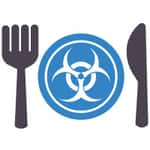
Food Technology Course Details - Fees, Subjects, Syllabus, Duration, Eligibility, Career Scope
Degrees offered: M.Sc., B.E /B.Tech, B.Sc., Ph.D, B.Sc.(Hons)
What is Food Technology
Food technology is a field of science that deals with the techniques involved in the production of food, both organic and inorganic. The techniques of food production included in the food technology course are production, preservation, processing, quality management, packaging, labelling, and the distribution of food products. It is among the most rapidly expanding areas of science and technology.
Food Technology degree courses cover subjects like food chemistry, microbiology, processing, and quality control. Candidates can pursue food technology in the form of degrees of B.Tech, M.Tech, B.Sc, or M.Sc. There are around 100 colleges in India that offer degree courses in food technology.
Candidates who pursue food technology can find lucrative job opportunities in domains such as catering, restaurants, food processing companies, and hospitality management. Candidates can pursue roles of food scientists, quality assurance managers, product development specialists, and food safety officers. The top recruiters for food technologists are Amul, ITC Limited, Britannia Industries, Parle Products, Hindustan Unilever, Nestlé India, and PepsiCo India.
Food Technology Course Highlights
Particulars | Values |
Branch Name | Food Technology |
Degree | |
Eligibility Criteria | UG: 10+2 in Science stream |
Admission Process | Entrance Based |
Entrance Exam | JEE Main, JEE Advanced, WBJEE, BITSAT, SRMJEEE, CUET UG, GATE |
Course Fees | Rs. 60,000 to 1,00,000 per year |
Job Profiles | Food Scientists, Quality Assurance Managers, Product Development Specialists, and Food Safety Officers |
Average Salary | Rs. 6.5 LPA |
Recruiting Companies | Amul, ITC Limited, Britannia Industries, Parle Products, Hindustan Unilever, Nestlé India, Dabur, PepsiCo India, Cadbury India Limited, Gits food products private Limited, Parle Products Private Limited, Mondelez India and Godrej Agrovet |
Specialisation or Similar Ones
There are many similar courses and specialisations in Food Technology available. Those similar specialisations can provide similar types of career prospects after completing the degree. Students can pursue specialisations in the agriculture sector, bakery, alcohol, cereals, vegetables and fruits, dairy, probiotic supplements, waste management, and other areas. Some of the specialisations in Food Technology are as follows:
B.Tech Food Science Technology and Processing | B.Tech Food and Sugar Technology |
Top Food Technology Colleges in India
There are around 100 colleges in India that offer Food Technology courses. These colleges provide candidates with comprehensive education along with real-life practical experience. The fee structure varies from one college to another. Below is a list of some good colleges in India that offer food technology courses in India.
Colleges | Average Fees |
- | |
- | |
Rs. 11 Lakhs | |
Rs. 4.98 Lakhs | |
- | |
Rs. 9.80 Lakhs | |
- | |
Rs. 4.6 Lakhs | |
Rs. 2.2 Lakhs | |
Annasaheb Dange College of Engineering and Technology, Sangli | Rs. 4.28 Lakhs |
Note: The fee structure provided above can be for any particular Food Technology course (Diploma/ Degree/PGD).
Top Private Food Technology Colleges in India
In India, there are around 60 colleges that provide Food Technology courses. These colleges are renowned for their world-class facilities, comprehensive education, and expertise faculties. The top private colleges in India for food technology are mentioned below.
Colleges | Average Fees |
- | |
- | |
Rs. 3.4 Lakhs | |
Rs. 6 Lakhs | |
Rs. 4.09 Lakhs | |
Rs. 6 Lakhs | |
Rs. 2.65 Lakhs | |
Rs. 7.36 Lakhs | |
Rs. 1.43 Lakhs | |
University Institute of Engineering, Chandigarh University, Chandigarh | Rs. 8.4 Lakhs |
Top Government Food Technology Colleges in India
Numerous government colleges in India offer Food Technology courses. These colleges and universities provide similar facilities at a minimal cost. These colleges also provide a blend of theoretical as well as practical skills to the candidates. Below is a list of India's top government colleges.
Colleges | Average Fees |
Rs. 3.14 Lakhs | |
- | |
Rs. 33,330 | |
Rs. 26,400 | |
Rs. 33,380 | |
- | |
Rs. 3.85 Lakhs | |
- | |
- | |
- |
Eligibility Criteria (UG & PG) of Food Technology
There are certain entrance requirements that candidates need to follow to get admission to food technology courses. The eligibility criteria vary as per the different levels of education. Below is the list of certain requirements that candidates need to take care of to start with their application process.
Eligibility Criteria UG Courses
Candidates who are interested in pursuing food technology right after their 10+2, have several colleges and universities to choose from. Below are a few important points to remember for eligibility.
- Candidates must complete his or her 10+2 with Physics, Chemistry, Maths, or Biology as main subjects from a well-recognized Indian board.
- They also need to appear for the entrance examination.
Top Entrance Exams for UG Courses
There are certain entrance exams that candidates need to qualify to be eligible for admission in food technology. Below is the list of some important entrance exams that candidates need to appear to get admission to undergraduate courses in food technology.
Exam Name | Level | Conducting Body | Exam Schedule |
National | NTA | ||
National | IIT Bombay | ||
National | NTA | ||
National | NTA | ||
State | State Common Entrance Test Cell - Maharashtra State | - | |
University | BITS | ||
University | SRM University | ||
State | West Bengal Joint Entrance Examinations Board |
Eligibility Criteria for PG Courses
Individuals who are interested in pursuing their education in food technology can apply for the same in several colleges and institutions. Given below are some of the points to note for PG eligibility.
- Candidates need to complete their graduation from a recognised university in Food Technology or a related field.
- Candidates must also fulfil the college/graduation university's percentile criteria.
- They also need to appear for the entrance examination.
Top Entrance Exams for PG Courses
Similarly for postgraduate courses also, candidates are required to qualify for certain entrance exams. Below is the list of some important entrance exams that candidates need to take for admission to postgraduate courses.
Exam Name | Level | Conducting Body | Exam Schedule |
National | IITs | ||
National | NTA | ||
State | Karnataka Examinations Authority | - | |
State | Sri Venkateswara University Tirupati | - |
Scope of Food Technology in India and Abroad
Food technology has a broader scope in today's world. A person with a decent understanding of the fundamentals of food manufacturing can apply for jobs in dairy and food production, food storage, frozen nutrition, and thermal processing. The sector offers numerous career opportunities in food processing, quality control, research and development, and food safety.
Similarly, abroad also the scope of food technology is much broader. There are plenty of job opportunities in large food companies, research centres, and government agencies. Professionals in this field work on new technologies like genetically modified foods, plant-based proteins, and eco-friendly packaging.
Course Fees Food Technology
| Minimum Fees | Maximum Fees | |||
|---|---|---|---|---|
| Private | Government | Private | Government | |
| UG | ||||
| PG | ||||
| DOCTORAL | ||||
| DIPLOMA | ||||
Course Subjects
Food Technology Syllabus for UG Courses
The syllabus for UG courses in food technology includes subjects such as Principles of Food Processing, Biochemistry, Microbiology, Food Packaging Technology, and Heat and Mass Transfer. The coursework in food technology has eight semesters in the course of four years. The syllabus for B.Tech. Food Technology offered by Agricultural Universities of Maharashtra is given below.
Semester 1 | |
Principles of Food Processing | Postharvest Management of Fruits and Vegetables |
Engineering Drawing and Graphics | Fluid Mechanics |
Mathematics | Environmental Science and Disaster Management |
Biochemistry | General Microbiology |
Computer Programming and Data Structure | - |
Semester 2 | |
Cereal Processing | Food Packaging Technology |
Heat and Mass Transfer | Statistical Methods and Numerical Analysis |
Food Microbiology | Human Nutrition |
Food Chemistry of Macronutrients | Information and Communication Technology |
Semester 3 | |
Legumes and Oilseeds Technology | Meat, Poultry and Fish Technology |
Processing Technology of Beverages | Processing of Milk and Milk Products |
Energy Generation and Conservation | Unit Operations in Food Processing |
Food Chemistry and Micronutrients | Industrial Microbiology |
Semester 4 | |
Wheat Milling and Baking Technology | Fruits and Vegetables Processing |
Processing of Spices and Plantation Crops | Operations in Food Processing – II |
Post Harvest and Storage Engineering | Food Additives and Preservatives |
Food Safety and Microbial Standards | ICT Application in Food Industry |
Semester 5 | |
Confectionery and Snacks Technology | Food Extrusion Technology |
Biochemical Engineering | Food Refrigeration and Cold Storage |
Instrumental Techniques in Food Analysis | Food Biotechnology |
Entrepreneurship Development | Business management and Economics |
Food Laws and Regulations | - |
Semester 6 | |
Food Quality and Sensory Evaluation | Food Processing Equipment Design |
Food Plant Design and Layout | Instrumentation and Process Control |
Enzymes in Food Industry | Food Plant Sanitation |
Quality Assurance and Certification | Project Preparation and Management |
Marketing Management and International Trade | Communication Skills and Personality Development |
Semester 7 | |
Experiential Learning Programme – I | Experiential Learning Programme – II |
Research Project | Seminar |
Semester 8 | |
Implant Training | - |
Food Technology Syllabus for PG Courses
The syllabus for PG courses is overall divided into four semesters in two years. The syllabus of PG courses is very comprehensive and includes practical subjects as well. The syllabus for M.Tech Food Technology offered by Marathwada Krishi Vidyapeeth Parbhani is given below.
Semester 1 | |
Advances in Food Chemistry and Nutrition | Modern Food Microbiology |
Advances in Food Engineering | Nutraceuticals and Health Foods |
Cold Chain Management | Food Supply Chain Management |
Semester 2 | |
Food Processing | Food Packaging |
Food Quality Systems and Management | Beverages Technology |
Grain Storage Technology | Computer Applications in Food Industry |
Technical Writing and Communications | Intellectual Property and Its Management In Agriculture |
Semester 3 | |
Food Analysis | Equipment Design and Process Control |
Business Management and International Trade | Agricultural Research Ethics and Rural Development Programmes |
Disaster Management | - |
Semester 4 | |
Research Work and Thesis | - |
Careers in Food Technology
Food technology students are hired by organisations such as the Food Corporation of India, public distribution agencies, and the Government of India's Department of Food and Public Distribution. A student in food technology can choose from a variety of career profiles which are listed below:
Job Profile | Job Description |
Bacteriologist | Bacteriologist monitors the ecology and reproduction of the species. To perform studies and trials, he or she collaborates with other scientists. |
Food technologists are in charge of ensuring that the food products are safe to consume. A food technologist's work also includes packaging, food protection, and storage management. | |
Toxicologists study the effects of different hazardous substances on humans and the environment. Toxicologists also do a variety of experimental and field experiments to get a better understanding of the impact of radioactive materials. | |
Dairy Technologist | Dairy technologists are responsible for creating modern and efficient ways of producing, preserving, as well as using dairy products. Dairy Technologist uses the principles of physics, chemistry, economics, engineering, and bacteriology. |
Farm managers are in charge of overseeing and maintaining a farm. A crop farm's fertilisation, planting, irrigation, flowering, and harvesting will be overseen by farm managers. They are responsible for overseeing the general care of animals on a livestock farm as well as disease control. | |
The Agriculture Inspector reviews food production practices, such as logging, fishing, and farming records, to ensure that the food that customers receive is safe to eat. Agriculture inspectors are in charge of inspecting meat processing units and ensuring their protection in those plants. |
Upcoming trends
In recent times, the focus of food technologists has moved towards sustainable techniques and eco-friendly practices. Personalised nutrition is also becoming popular, using technology to create diets customised for individual needs. Food packaging is also improving to reduce waste and keep food fresh longer, with biodegradable and smart materials. Scientists are also trying to make dairy products without animals.
Job Profiles and Top Recruiters
In India, several companies employ those who have done their food technology course. The educational credentials and expertise of food technologists determine their job and designation. Companies employ them for the above positions and profiles. Some of the top recruiting companies are listed below:
- Nestle India Private Limited
- Dabur India Limited
- PepsiCo India
- MTR Foods Limited
- Agro Tech Foods
- Perfetti India
- Hindustan Unilever Limited
- Coca Cola
- Amul
- Godrej Industrial Limited
Average Salary
There are a variety of career opportunities after pursuing a course in Food technology. Candidates can find various job roles based on their educational qualifications and experience. The salary is also decent in these careers. Here, in this section, the salaries of some of the top career profiles that candidates can choose after doing food technology courses are given below.
Careers | Average Salary |
Bacteriologist | Rs. 2 LPA |
Food Technologist | Rs. 3.6 LPA |
Toxicologist | Rs. 4 LPA |
Dairy Technologist | Rs. 6.4 LPA |
Farm Manager | Rs. 7.3 LPA |
Agricultural Inspector | Rs. 2.9 LPA |
Source: AmbitionBox
The salary figures mentioned anywhere in these articles are just for reference purposes. Please treat them as such. Actual salaries may vary depending on respective candidates, employer, job location and numerous other factors.
Required Skillset for Food Technology
A deep interest in the field of health and science is a key to excelling as a food technology graduate. Additionally, students must possess core technical as well as soft skills to have a better understanding of the subjects. The following are the skills required for a food technology course.
Required Skills:
- Food Science
- Biotechnology
- Microbiology
- Chemistry
- Nutrition
- Quality Control
- Research and Development
- Data Analysis
- Engineering
- Process Design
Course Curriculum for Food Technology
The course curriculum for food technology includes foundational subjects such as Food Chemistry, Microbiology, and Nutrition. It also covers some subjects of Processing and Preservation Techniques, Food Safety, and Quality Control. The curriculum has a blend of practical laboratory work, internships, and research projects. The syllabus aims to equip students with comprehensive knowledge for careers in the food industry.
Popular Food Technology Entrance Exams in India
Frequently Asked Questions (FAQs)
Question: How many subjects are there in food technology?
Answer :
Biochemistry, food microbiology, nutritional measurement techniques, process engineering, food manufacturing technology, food marketing and invention, food chemistry, food and packaging engineering, food preservation, industrial testing techniques, and quality and reliability control are only a few of the topics covered by food technology students.
Question: Which is the best college for food technology?
Answer :
Some of the top colleges for food technology in India are IIT Kharagpur, Jadavpur University, NIT Rourkela and Chandigarh University.
Question: Is maths compulsory for food technology?
Answer :
No, maths is not needed for a career in food technology. To pursue a degree in food science, one must have completed 10+2 with biology or maths, as well as physics and chemistry.
Question: What is food technology and its scope?
Answer :
Food technology is a field of science that studies the methods used in the development, refining, preservation, packaging, marking, quality control, and delivery of food. Methodologies and procedures for transforming raw materials into food are also included in this area.
Question: Is food processing technology B.Tech a great course to take?
Answer :
The B.Tech. in Food Technology is a suitable course for students who want to learn about the theoretical principles of food science and technology. Food science is covered in depth in the B.Tech. in Food Technology.
Question: What is a food technology course?
Answer :
The Bachelor of Science in Food Technology is a four-year programme that combines chemistry, biology, and engineering to develop and process healthy, stable, palatable, and nutritious food to solve global food security issues.
Question: What are the career opportunities after pursuing a food technology course?
Answer :
There are several career opportunities after pursuing a food technology course. Those are Bacteriologists, Food Technologist, Toxicologist, Dairy Technologist, Farm Manager, Agricultural Inspector.
Question: What are the benefits of food technology?
Answer :
Food technology enables greater nutrient use in the supply chain from field to fork, reducing the amount of primary food processing needed. There are several stages in the food chain from production to consumption.

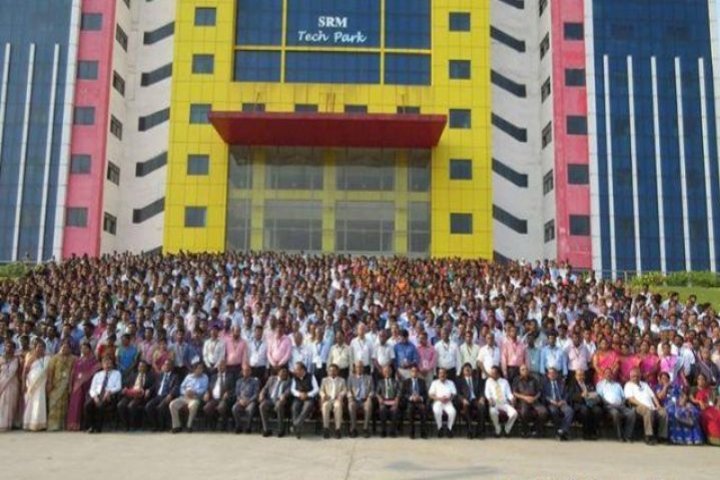
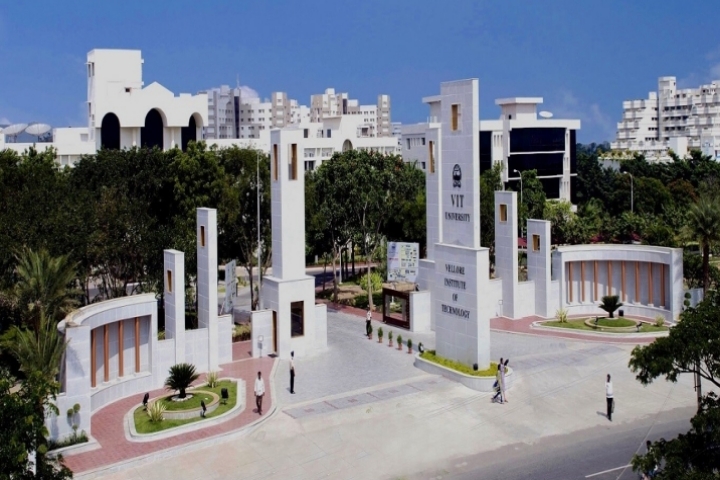
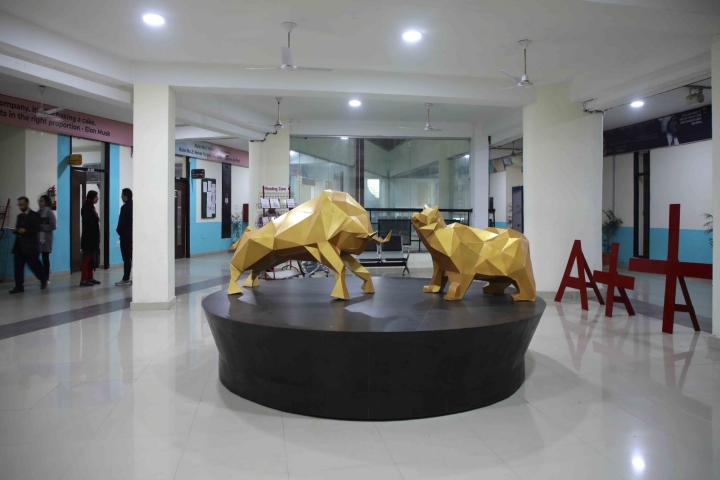
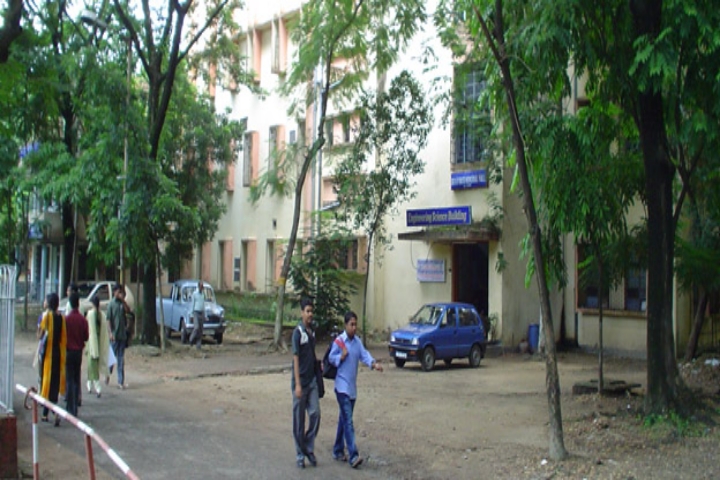
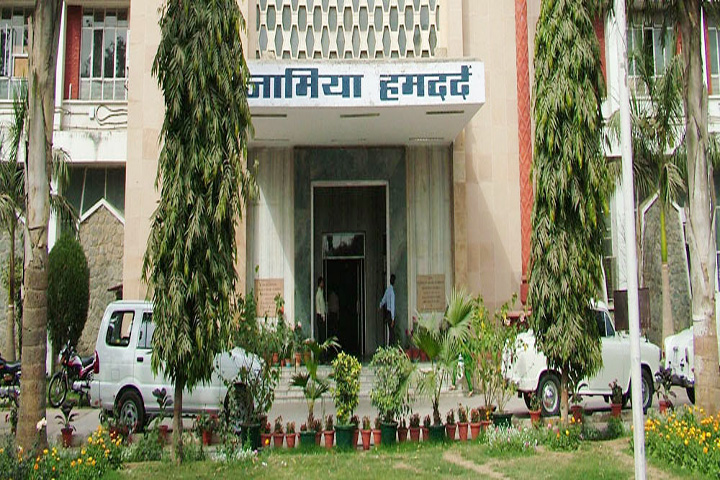
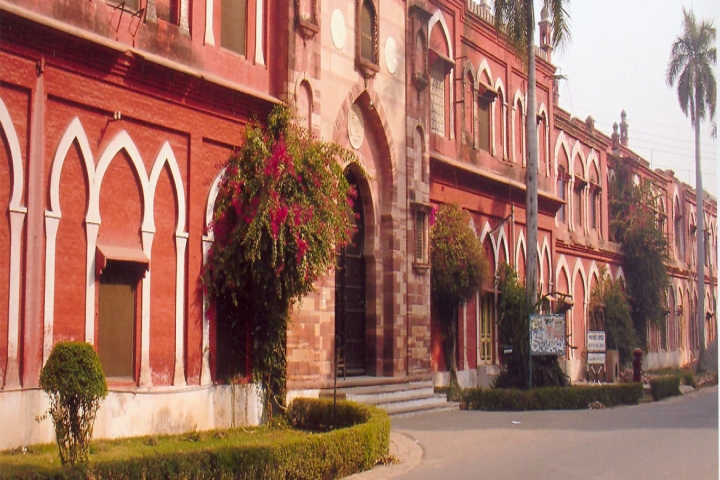
.jpg)
